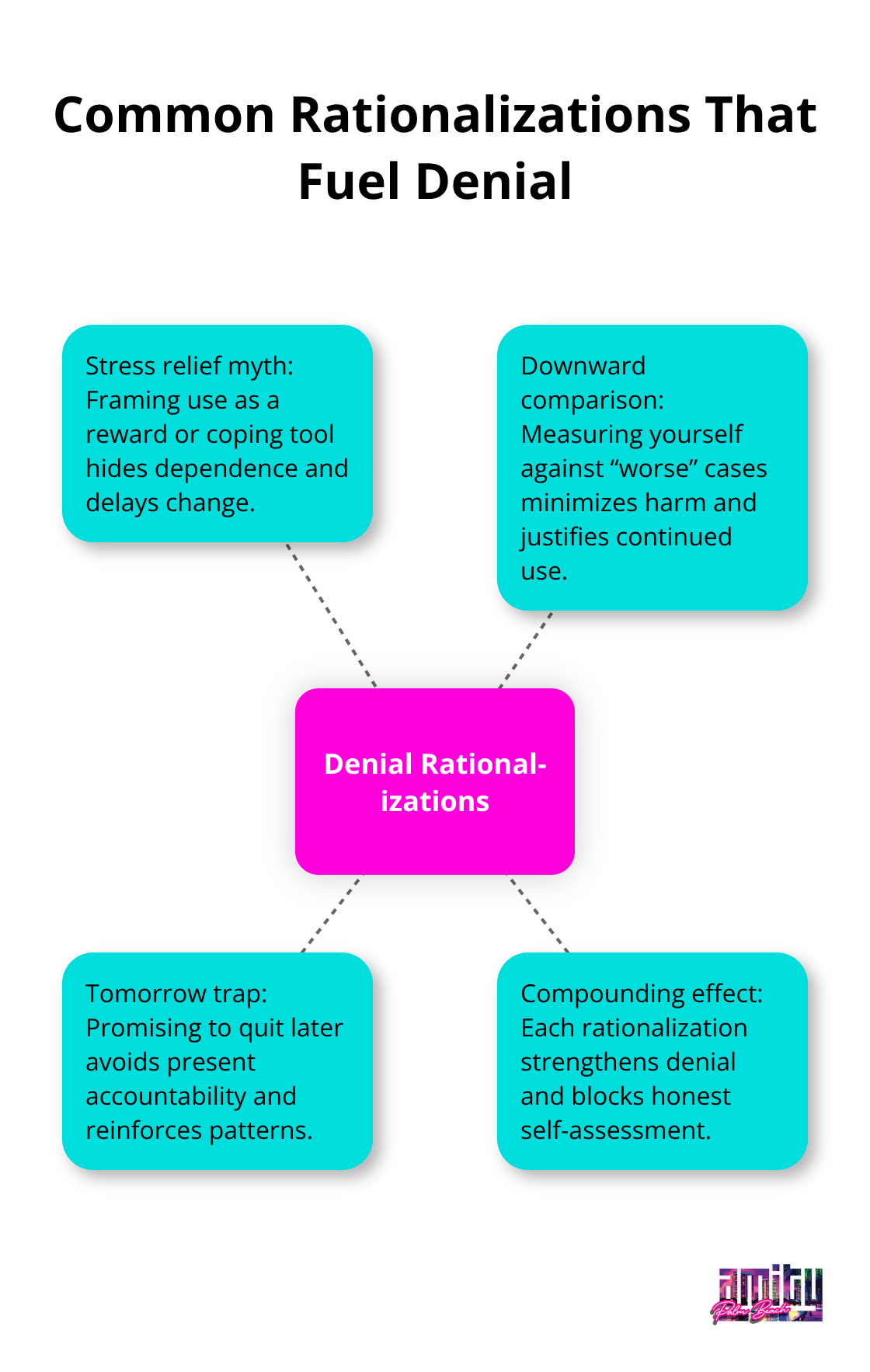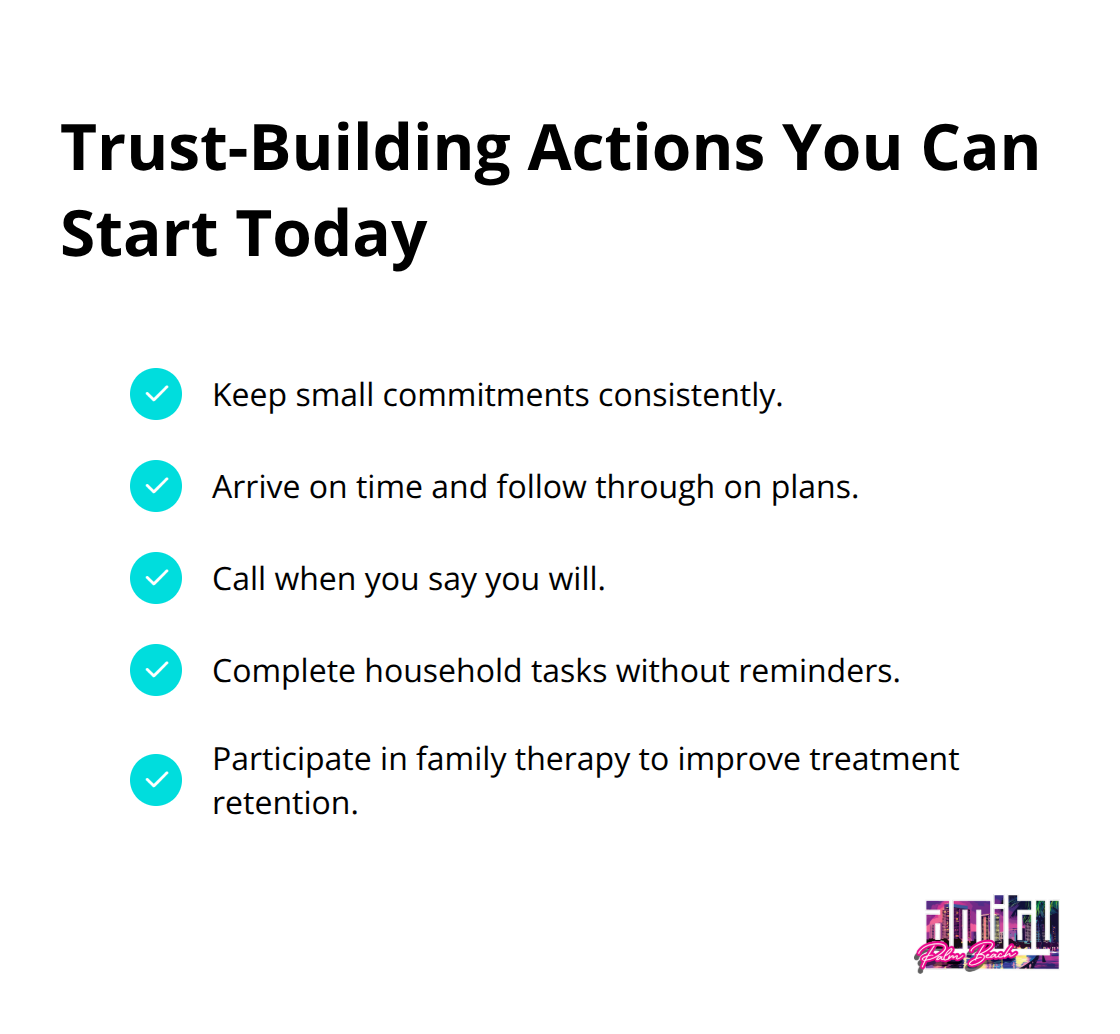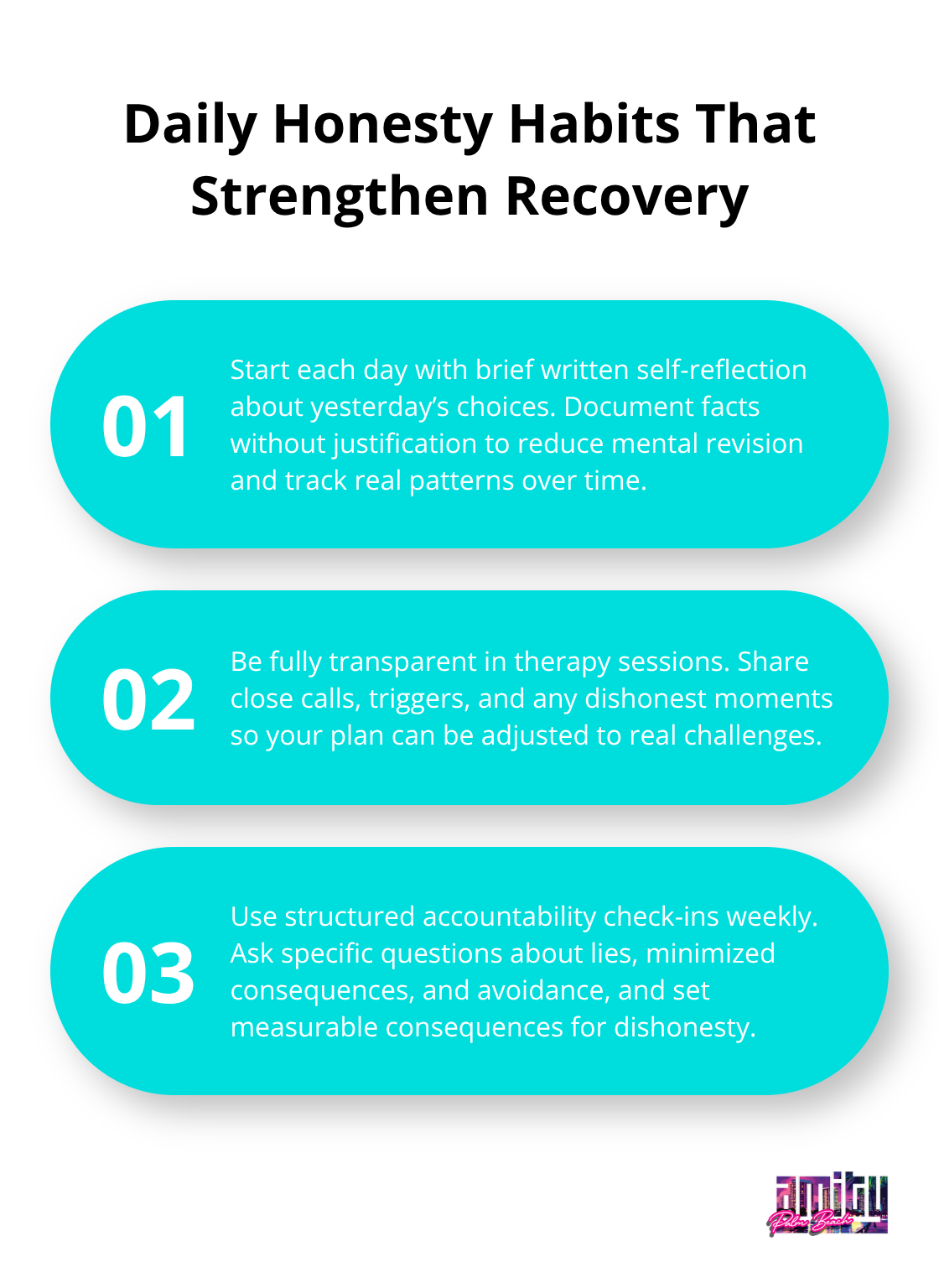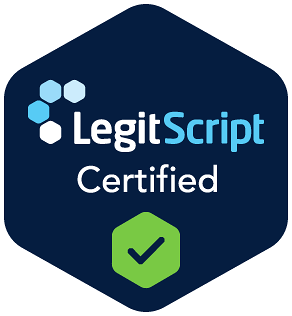Recovery from addiction requires facing uncomfortable truths about yourself and your behaviors. The importance of honesty in addiction recovery cannot be overstated.
We at Amity Palm Beach have seen how truthfulness becomes the foundation for lasting sobriety. Without honest self-reflection and open communication, people often find themselves trapped in cycles of relapse and disappointment.
How Denial Blocks Your Recovery Path
Denial acts as addiction’s strongest defense mechanism and creates elaborate justifications that keep you trapped in destructive patterns. Research indicates that most addicted individuals need at least 3 months in treatment to significantly reduce or stop their drug use. This self-deception manifests in common phrases like “I can quit whenever I want” or “My drinking isn’t that bad compared to others.” The brain under addiction literally rewires itself to prioritize substance use and makes rational self-assessment nearly impossible.
The Hidden Cost of Self-Deception
Self-deception in addiction follows predictable patterns that prevent meaningful change. You minimize consequences when you focus on isolated good days while you ignore weeks of chaos. You shift blame to external circumstances, relationships, or work stress rather than acknowledge your substance use as the primary problem. Studies indicate that people in active addiction spend significant mental energy to maintain these false narratives which exhausts your ability to make clear decisions about treatment.
Mental Barriers That Block Progress
These mental barriers create specific obstacles that prevent recovery success. You rationalize your substance use as stress relief or reward for hard work. You compare your situation to others who seem worse off and convince yourself your problem isn’t serious. You promise yourself you’ll quit tomorrow, next week, or after one more event. Each rationalization strengthens the denial system and makes honest self-assessment more difficult.

Daily Practices That Challenge Distorted Thinking
Transform your awareness through specific actions that challenge false beliefs. Start each morning when you write three honest observations about yesterday’s choices without justification or explanation. Track your substance use patterns for one week and note exact amounts, times, and immediate consequences. Share these observations with a trusted person who won’t enable your excuses. The Daily Progress System is a daily mobile health monitoring tool that allows clients with opioid use disorder to track substance use and improve treatment engagement.
Structured Accountability Measures
Accountability requires concrete actions that move beyond simple awareness. Schedule weekly check-ins with someone who understands addiction recovery and won’t accept vague responses about your progress. Use specific questions: “What did I lie about this week?” and “Which consequences did I minimize today?” Create concrete consequences for dishonesty, such as additional therapy sessions or extended treatment commitments. Dr. Richard Crabbe emphasizes that honesty requires the same consistency as physical exercise – daily repetition builds the mental strength needed for sustained recovery.
These accountability practices prepare you to rebuild the relationships that addiction has damaged through dishonesty and broken promises.
Building Trust Through Honest Communication
Trust rebuilds through concrete actions that demonstrate consistent honesty over time. Family members and friends need proof that your words match your behavior because addiction destroys credibility through repeated broken promises. Start with small commitments you can absolutely keep – arrive on time for dinner, call when you say you will, or complete household tasks without reminders. Research shows that family therapy participation can significantly improve treatment retention rates when honest communication becomes the foundation.

Repairing Damaged Relationships with Family and Friends
Schedule weekly family meetings where you share specific recovery progress, admit mistakes immediately when they happen, and ask directly what trust-building actions matter most to each person. Your family needs to see consistent behavior changes rather than just hear promises about future improvements. Create specific agreements about communication frequency, check-in times, and transparency about your daily activities. Many families benefit from structured conversations that focus on observable behaviors rather than feelings or intentions (which addiction has taught them to distrust).
Establishing Credibility with Treatment Professionals
Your treatment team needs accurate information to develop effective interventions, which means you must admit uncomfortable truths about your substance use patterns, mental health symptoms, and relationship conflicts. Treatment professionals emphasize that honest communication creates better therapeutic relationships and more effective treatment planning. Share detailed accounts of your daily experiences, including close calls with substances, emotional triggers, and relationship tensions. Treatment professionals respond to honesty with increased support and better treatment planning, so share complete information about cravings, struggles, and medication compliance during every session.
Creating Authentic Connections in Support Groups
Support groups offer the most powerful environment for practicing honest communication because members recognize manipulation tactics and call out dishonesty immediately. Attend meetings regularly, share authentically about your struggles without minimizing consequences, and ask for specific feedback about your progress. Group members who have walked similar paths can spot inconsistencies that family members might miss. The accountability created through honest group participation builds communication skills that transfer to all your relationships.
These honest communication practices create the foundation you need to implement specific daily techniques that strengthen your commitment to truthfulness throughout your recovery journey.
How Do You Practice Honesty Daily
Honest recovery demands specific daily actions that build truthfulness into your routine. Start each morning with five minutes of written self-reflection where you document yesterday’s choices without filters or justifications. Research from addiction treatment studies shows that people who maintain daily recovery journals demonstrate improved long-term outcomes compared to those who rely on memory alone. Write exactly what you consumed, whom you spoke with, and which emotions triggered cravings or poor decisions. This written record prevents the mental revision that happens when you only think about your progress.
Transform Your Therapy Sessions Through Complete Transparency
Therapy sessions become transformative when you share the uncomfortable details that shame tells you to hide. Prepare for each session when you write specific examples of dishonesty from the past week (including white lies, omissions, and self-deception patterns). Travis Pantiel, LMHC, MCAP emphasizes that treatment professionals need complete information to create effective interventions, which means you must admit to medication non-compliance, unreported substance use, or relationship conflicts you’ve minimized. Tell your therapist about close calls with substances, emotional triggers that caught you off-guard, and situations where you chose dishonesty over difficult conversations. This level of transparency allows your treatment team to adjust your recovery plan based on real challenges rather than sanitized versions of your experience.

Create Unbreakable Accountability Systems
Effective accountability requires structured check-ins that go beyond casual conversations about your progress. Schedule weekly sessions with your sponsor or accountability partner when you use specific questions that demand concrete answers: What did you lie about this week, which consequences did you minimize, and where did you choose comfort over honesty. Create measurable consequences for dishonesty (such as additional meeting attendance or extended treatment commitments). The most successful accountability relationships include people who understand addiction recovery and won’t accept vague responses about your emotional state or progress.
Track Your Honesty Patterns Through Daily Journaling
Daily journaling creates a written record that exposes patterns of dishonesty you might otherwise miss. Write for ten minutes each evening about moments when you chose truth over comfort, times when you avoided difficult conversations, and situations where you minimized consequences. Focus on specific behaviors rather than general feelings about your day. This practice helps you identify triggers that lead to dishonesty and recognize progress in your commitment to truthfulness. The isolation that addiction creates dissolves when you practice honesty and vulnerability. The written record becomes a tool for accountability sessions and therapy discussions.
Final Thoughts
The importance of honesty in addiction recovery extends far beyond initial treatment success. People who maintain truthful practices throughout their recovery journey show significantly higher rates of sustained sobriety compared to those who return to patterns of deception and self-justification. Honest communication creates benefits that compound over time and strengthen your foundation for long-term recovery.
Your relationships rebuild stronger foundations when family members see consistent truthful behavior rather than empty promises. Professional relationships with therapists and sponsors become more effective when they receive accurate information about your daily struggles and victories. Support group connections deepen when you share authentic experiences rather than sanitized versions of your progress (which addiction taught you to create automatically).
Truthfulness supports sustained sobriety when it eliminates the mental energy required to maintain false narratives about your recovery. When you stop the exhaustive process of maintaining lies to yourself and others, you free up cognitive resources to focus on genuine growth. We at Amity Palm Beach provide comprehensive support in a safe environment where truthfulness becomes natural rather than forced.




